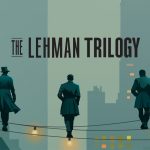The American Right’s Scary Views
The future of conservative thought after Trump looks dark.

A Trump sign and torn US flag flying after the election near St Croix Falls, Wisconsin. File photo by Lorie Shaull from St Paul, United States, (CC BY-SA 2.0), via Wikimedia Commons
Rick Esenberg, the president of the Wisconsin Institute for Law & Liberty (WILL), is a key figure in the conservative movement. With their recent torrent of lawsuits resisting pandemic measures and supporting the Republican gerrymander, and links to major GOP figures (like the Bradley Foundation and major Republican donors) WILL and Esenberg are well connected in Wisconsin’s and the nation’s conservative ecosystem. So it was of some interest when Esenberg posted a note taking issue with a recent article in the National Review by Mario Loyola.
Esenberg was careful to call it a “nice essay,” but then went on to say “sorry guys… this NatCon MAGA agenda… is not the answer.”
Esenberg referred to “fusionism,” a term previously unfamiliar to me but probably clear to his target audience. It refers to the “fusing” of social (or traditional) conservatism with economic libertarianism. It is credited to Frank Meyer and is said to describe the philosophy underlying the Reagan administration. Like other members of his generation, notably Whitaker Chambers, Meyer started his career as a member of the Communist Party, but ended up as a conservative, working with William Buckley at the National Review.
Esenberg’s shorthand reference to the National Conservative Conservatism/ MAGA agenda is a reference to the Trump agenda, whatever that is, and offered it weak praise (“understandable and not without its insights”). Beyond doing whatever it takes to benefit Donald Trump and his attempt to continue his control of the Republican Party, it is unclear what the MAGA agenda consists of.
In The Atlantic magazine, longtime conservative David Brooks, who started his career working for Buckley, captured the National Conservatism Conference in action. Brooks described it as the “terrifying future of the American right.” He quoted one speaker as saying, “Woke elites—increasingly the mainstream left of this country—do not want what we want. What they want is to destroy us.” Brooks reported that this speech elicited enthusiastic applause.
Brooks summarized the message: “The national conservatives thus describe a world in which the corporate elite, the media elite, the political elite, and the academic elite have all coagulated into one axis of evil, dominating every institution and controlling the channels of thought.”
A similar approach is taken by Loyola in his National Review article. His thrust is to attack contemporary liberalism by distorting it. For instance, he describes “the progressive program” as a form of “socialism.” He then goes on to claim that “socialism must always lead to arbitrary dictatorship.”
The two parts of this claim fight each other. The progressive program, as illustrated by the proposals from the Biden administration, would strengthen the American safety net. If strengthening the safety net is socialism, then countries like Sweden, Norway, and Finland are socialistic. By Loyola’s logic, these three countries have become “arbitrary dictatorships.”
Every year, Freedom House issues its report on democracy in the world. It rates countries based on two broad categories. The first is Political Rights, rated on a scale of 0 to 40. Do citizens have freedom to choose their leaders? For example, countries are downgraded if parties use gerrymandering to entrench themselves in power. Had Donald Trump been successful in his efforts to reverse the 2020 election results, that would have been fatal to America’s status as a democracy, and greatly lowered its Freedom House Political Rights rating (not to mention its image in the real world).
Freedom House’s second group of measures lead to a score in Civil Liberties, with a maximum of 60 points. For example, are citizens free to practice their religion, including choosing no religion? To summarize, the first index measures whether majorities are able to determine government policies; the second measures the right of minorities to disagree with the majority.
The graph below shows the scores of the countries which Freedom House rates as “free,” rating a total score of 80 or above. The three Nordic countries are the only ones to receive a perfect score, while the U.S. received a combined score of 53, putting it below much of Europe.
Alternatively, one could conclude that the three Nordic countries are not socialistic, and therefore proposals to strength the American safety net are not socialistic. A search of the internet, using “is Sweden socialistic” found websites answering both yes and no, reflecting the lack of consensus as to what constitutes socialism. The majority of responses answered the question in the negative. Instead, they suggested the three countries are more accurately described as social democracies and, like the United States, capitalistic.
How would Loyola have the United States preserve democracy and avoid becoming an arbitrary dictatorship? In his view, making America free again demands a return to 1905 and Lochner v. New York in which the Supreme Court invalidated a New York law limiting working hours to 10 hours per day. That, I guess, qualifies as moderation compared to the views Brooks reported.
Data Wonk
-
Life Expectancy in Wisconsin vs. Other States
 Dec 10th, 2025 by Bruce Thompson
Dec 10th, 2025 by Bruce Thompson
-
How Republicans Opened the Door To Redistricting
 Nov 26th, 2025 by Bruce Thompson
Nov 26th, 2025 by Bruce Thompson
-
The Connection Between Life Expectancy, Poverty and Partisanship
 Nov 21st, 2025 by Bruce Thompson
Nov 21st, 2025 by Bruce Thompson






















Republicans and conservatives are traitors. That’s all that needs saying.